Java Republic’s Coffee Origin Trip to Sumatra
At the end of November 2018, Java Republic went on a Coffee Origin Trip to Sumatra. Just a few short weeks later, we were devastated to hear that the country (along with Java) had been struck by yet another tsunami, killing hundreds of people and bringing devastation to thousands. David McKernan travelled to Sumatra with his daughter Katie and wrote the following article upon his return, before the tsunami hit.
Java Republic last visited Indonesia in 2003, when we travelled to the island of Java. While there we visited the government-owned Blawan Estate, where today we continue to buy Grade 1 Lingtong & Mandeling Green Coffee Beans from.
The reason now for our visit to the Island of Sumatra (6 times the size of Ireland) is to build a direct relationship with two independent women’s cooperatives called Ketiara and Café Femenino. As part of our “coffee with a conscience” ethos, we aim to buy directly from all farmers and farming communities, so that we can work with them closely and ensure they are receiving the support they need at all times.
Indonesia consists of 18,307 islands, with a population of over 264 million. Its capital Jakarta is located on the Island of Java (where I stole the first half of our brand name from!). Indonesians have only been independent from the Dutch (who first introduced coffee in the 1600’s) for 73 years.
Indonesia has over 2000 natural disasters every year (mainly due to its position on the highly unstable Pacific Ring of Fire), from tsunami’s and volcanoes to fires and earthquakes. However, the coffee communities that we visited seem to be totally immune to any past disasters and the people gave it no discussion time when we asked about it on at least three separate occasions.
The dominant religion is Muslim (261.1 million practicing) but the area we stayed, Aceh in Northern Sumatra, has a very strict Islamic culture and sharia law.
Our Journey
Dublin – London – Singapore – Medan – Takengon – Simallungun Region – Gayo Highlands
The country itself has a shocking air safety record with over 54 airlines banned from European air space, yet we travelled internally with Wings which is owned by Lion Air (which had a fatal crash last month). We found the flight to be pretty good though, apart from the landing!
Farms / Cooperatives Visited
Wahana Estate – Mutiara & Gayo Fairtrade – Organic Cooperatives – Arisarina Farm and Dry Mill – Ketiara – Permata Gayo – Kokowagayo Cooperatives
All the farms were between 1200 -1800 meters.
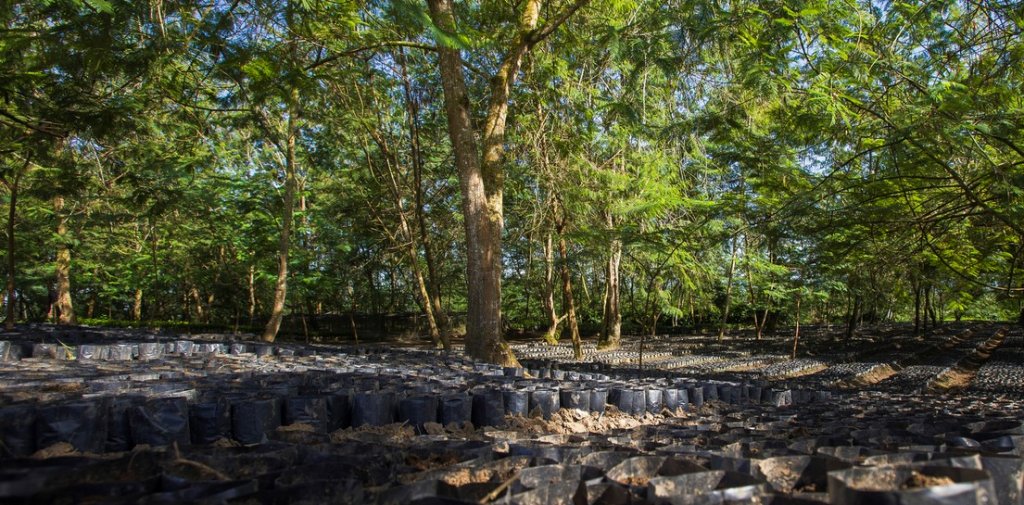
Health & Safety
I have never felt safer on an origin trip. The welcome from everybody was amazing, especially considering how both the Dutch and Japanese have treated this country in the past.
The Political Situation on the Island of Sumatra (Population 51 Million)
While we were in Aceh, every house or road was supporting a local politician for upcoming local elections. There is huge distrust for the central government but the new president elected in 2014, Joko Widodo, seems popular for fighting corruption. However the country seems to be still struggling from the Suharto Dictatorship of over 31 years.
The business community is dominated by a small proportion of Chinese. There is resentment of the transmigration of Javanese to the island of Sumatra by the Dutch and continued by the central government. The “unfair redistribution” of Sumatran recourses (oil & gold) back to the capital has led to a civil war and calls for an Independent Aceh.
The War (1976-2005), which comes up in conversation a lot, killed 15,000 people and soon afterwards the people were hit with the devastating Banda Aceh Tsunami. An agreement from central government to allow the region of Aceh broader government authority, led to more say on its conservative Islam tradition and investment programs that seems to be working.
Cigarettes
Aceh is a total white-wash with thousands of billboards and signs to encourage smoking and at least 70% of the population (all men by the looks of it) smoke. The cigarettes, known locally as Kretek’s, use locally grown cloves and last longer and require very deep inhalation. They are also the cheapest cigarettes on the planet at 1.35 per pack and also the most dangerous. We didn’t see one woman smoke in the five days we were there. Every part of the tobacco cigarette is grown locally so you must assume it is a protected industry with the US and Japanese / local companies making a killing!!!
Medan
“Welcome to shithole” said a man when we landed. With a population of 10 million, Medan is a Third World Country on speed. It will never appear on anybody’s bucket list. However, maybe it was the 75 star Marriott Hotel after some shocking accommodation, or the fact that everybody is nice to you, but the city grew on me. It has a fabulous airport, tolled highways to the city that take you through beautiful Padi Fields and then gorgeous palm trees lead to the outskirts and the start of the slums.
The traffic and driving was chaos with constant beeping and lives being put at risk every second from cars diving in and out of the tiniest gaps. There are very few high-rise buildings due to the old airport being right in the city centre.
My observation was that the small affluent Chinese community (10%) dominate the business community as well as shopping malls and airport travel. At times you could feel the resentment and, like Rwanda (our last trip in May), the people here have a different identity card even after 2-3 generations of living on the island. The Dutch, who brutally colonised the islands and enforced coffee farming labour, seemed to favour the Chinese and when they left this was the natural outcome. The untrained Sumatran native or “Cooli” lost out for a second time and probably forever.
The city has a couple of old Dutch colonial buildings left and even the old city hall (now a café) has a huge disgusting high-rise hotel just behind it. Fuel is 50 cent a litre and cars are cheap and you can rent motorbikes or scooters – but the city has no driving laws. When asked why are people so nice to us I got back that we white people are “Rock Stars” because we are different!!
One of the most staggering tech developments is a company called Go-Jek that started as a call centre and now is a mammoth App that allows users to get every possible product or service delivered with a click – this is our future.
Sumatran Coffee
The trip was organised by our long standing Green Coffee Partner DR Wakefield.
The north part of the Sumatran Island Aceh grows Arabica beans and the best coffees have the most beautiful blue-ish green clean colour because of their “wet-hulled” method they call Gilling Basah. No other coffee bean looks so handsome in the world of green coffee beans. The taste profile is also totally unique with medium acidity, great body and sweet spicy flavours, with vanilla and a long finish. In my opinion no other coffee on the planet works so well in both filter or espresso, either as a single estate or as a blend.
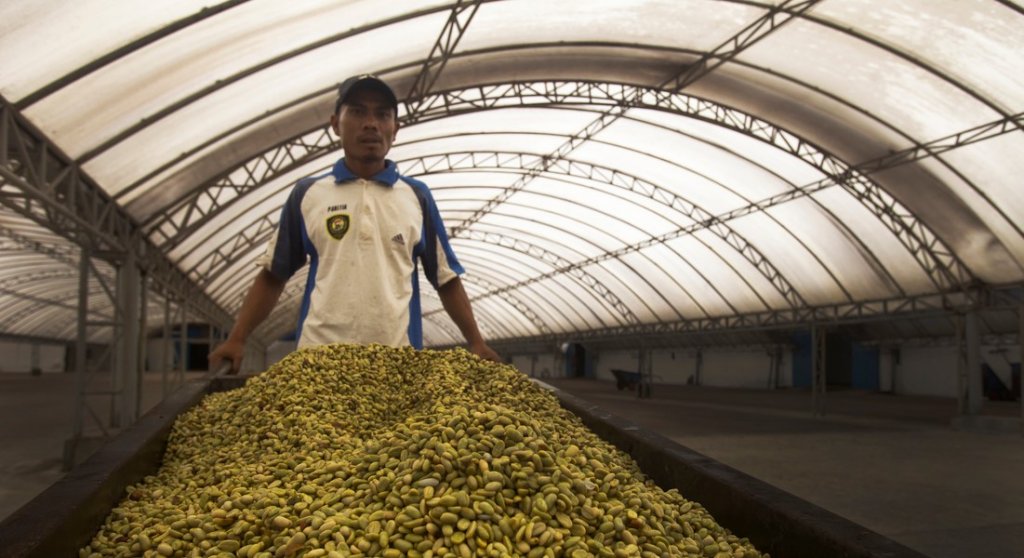
They have literally millions of stunning high yielding coffee trees everywhere on their roads, in their gardens and fields. Their weather results in a super-rich volcanic soil, which makes them the 4th largest producer of coffee in the world. The country has over 2 million small farm holders. All coffee is shade grown with tall skinny leguminous trees guarding them from the sun and also producing nitrogen in the ground which further helps the trees to grow. Constant pruning is needed to keep the coffee trees easy to harvest and to maintain strong yields. Avocado trees and virtually every fruit or root crop can grow here.
The Coffee Process
There is a huge choice of coffee that goes through different processes – natural, washed and honey for example, and all drying / processing facilities are immaculate and heavily invested in. The Long Berry and Rasuna Beans are more favoured and a lot of stains (tree types) such as Typica simply won’t produce here in Sumatra due to the soil and climate.
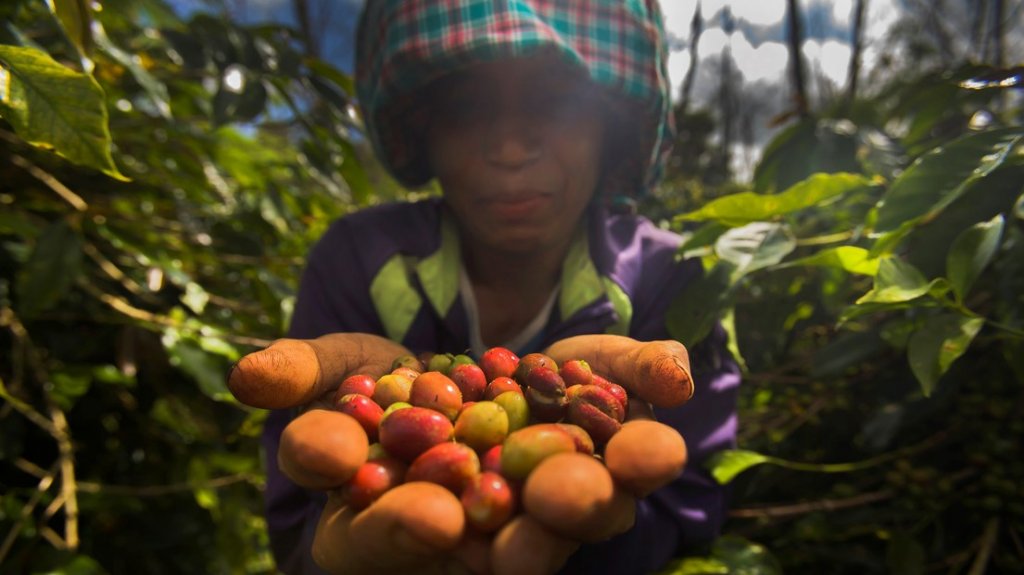
Price
Price is a problem, but this time not for the farmers – for the roasters and the consumers! The reason for very little of the best Northern Sumatra Coffee being sold in Ireland or Europe is that roasters tend not to buy it because it’s too expensive to use in blends. This leads to a lot of “mislabelling” going on by some roasters and retailers. The big buyers of the 7 million 60 kilo bags per year are the US (Starbucks & Peet’s) and the Japanese and Australians. Most of the farms promote Fairtrade and Organic FTO and all are certified and receiving premiums for their coffee. They are developing a huge internal market for their coffee, in which espresso is consumed as very strong, with sugar, mainly using cheap Robusta coffee.
Café Femenino and Ketiara
While on our trip we visited the Ketiara and Kokowagayo Cooperatives. Ketiara is a women-led cooperative that promotes the value and passion to celebrate women in the coffee business. The cooperative was started in 2009 and is led by Rahmah – “a wife, a mother and friend to thousands of farmers”.
The Café Femenino Cooperative in Sumatra is called Kokowagayo and is located in the Gayo region. Café Femenino is a one-of-a-kind ethical sourcing model committed to ending the cycle of poverty afflicting women coffee farmers across the world. It provides direct compensation to women farmers, along with the opportunity and resources to enact positive change in their communities and on their own terms.
Café Femenino provides high-quality, Fair Trade, organic coffee beans to coffee roasters across the world. Café Femenino supplies unblended beans to preserve the acidity, body, flavour and aroma unique to each Café Femenino coffee variety.
Café Femenino cooperatives must provide their women farmers with access to a host of political and economic benefits, including:
- Legal rights to the land on which they farm
- Leadership positions within the cooperatives
- Financial and business decision-making power
- Direct payment for their coffee, including a Café Femenino Premium
Following our visit, Java Republic are going to commit to at least both of these Fairtrade Organic Women’s Cooperatives.
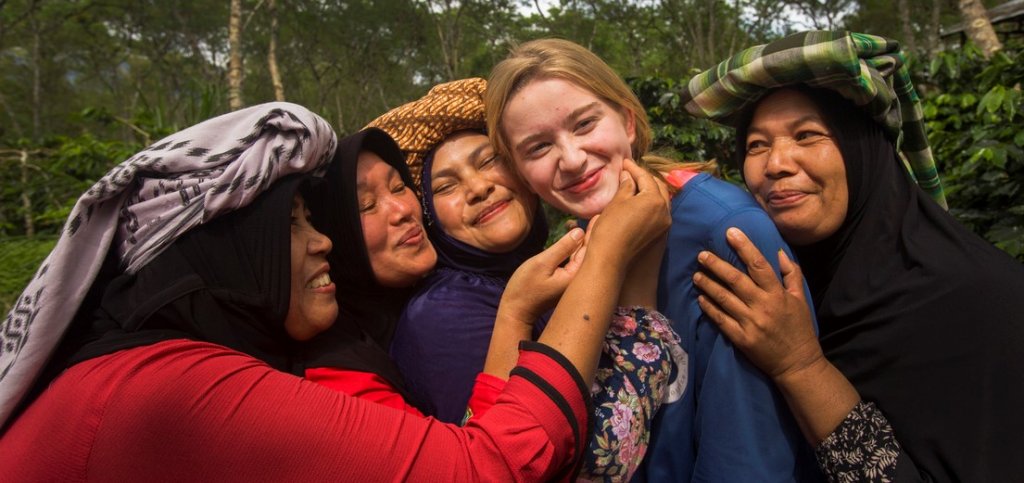
The Anomaly of How North Sumatran Aceh Coffee Farms Work
Most of the women farmers have 1 hectare of land and each hectare has approximately 1500 coffee trees. Each tree takes 9 months to grow in a “Nursery” (usually costs 30 cent to buy) and then 3-4 years to produce 5-6 kilos of coffee cherries per year. That’s 7500 kilos of cherry which then has to be handpicked very carefully (it takes 34 cherries to make your espresso) to make sure no unripe green beans are picked. A little twist technique when pulling the cherry ensures no damage for next year’s crop. Coffee pickers were all receiving $6 per day and were expected to pick 60-80 kilos a day. Most of the pickers chewed Betel Nut which gives a slight high like caffeine but is carcinogenic.
When the cherry is processed and the fruit, parchment and defects cleared out and moisture dried from 40% to 9%, the final weight of green beans is 1250 kilos. That equates to 55,000 coffees at 18g each and a retail value of €165,000 in our cafe’s, hotels, offices and bars.
The “Collector” (term used in Central America is Coyote) buys the cherries or parchment from the farmer and sells to the cooperative. I questioned why this extra layer was needed but didn’t really get an answer.
These female farmers are smart and push strongly to do business but, either they don’t know the final profit and don’t want to say, or they don’t seem to grasp the end of season Profit & Loss. The one thing that is certain, all the farms we visited with different yields per hectare were making a very good living with a return of somewhere between $2600 and $7000 per year after all costs.
This is very much against the norm as most of the farmers we have visited this year earn under $1500 per year, leaving them with 0000.9 of the retail price and selling green coffee below the cost of production. These farmers were not eking out a living which is so unusual to see and continually joked that Java Republic would take a container (320 60 kilo) bags. Finally, in all open conversations the women discussed a $1.50 premium over the “C” contract that day which was $1.11 per Lb. Surprising to me all week was the fact that in all my years visiting farms and witnessing the total unfairness and poverty trap, these women did not realise just how lucky they were. The crop will come in at 40% up on last year due to weather and the optimism was palpable.
Kopi Luwak (Cat’s Arse Coffee)
Kopi Luwak is the most expensive coffee in the world. Also called Civet Coffee, it includes part-digested coffee cherries eaten and defecated by the Asian Palm Civet. Fermentation occurs as the cherries pass through the civet’s intestines. After being defecated with other faecal matter, they are collected by Kopi Luwak farmers.
Producers of the coffee beans argue that the process may improve coffee through two mechanisms, selection – civets choosing to eat only certain cherries – and digestion – biological or chemical mechanisms in the animal’s digestive tract altering the composition of the coffee cherries.
Kopi Luwak was first discovered in the 1800’s and farmers collected from wild civets who ate the cherries naturally. However demand for the coffee in certain countries has led to intensive farming methods which have been found to be unethical and demonstrate cruelty to animals. Having been hammered in the press through the BBC’s expose of caged Palm Civets, we were pleasantly surprised to find that, despite the coffee being everywhere in Sumatra, there is not one cage in sight. It is a tiny but important part of any premium the farmers could receive and as long as there is no cruelty, this coffee is delicious and deserves a market.
The Palm Oil Debate – The Future of their Animals
I never really understood the debate until we drove through and flew over millions of these trees on a scale that’s just too late to stop. You can’t avoid this cheap vegetable oil – it’s in your lipstick, pizza, shampoo, noodles, chocolate, detergent, ice cream, biodiesel, bread, cookies and 70% of all other processed food you buy. Over the next 30 years in Sumatra, Palm Oil Trees will continue to be grown in massive scale farms which are destroying the tropical rainforest and the habitats of the small Sumatran Elephant, the Sumatran Orangutan and the Javan Rhino. Eventually they will be virtually extinct like everywhere else.
The Town of Takengon
It’s like any other town I’ve visited. There are plenty of food and street cafés and small markets, fruit stalls and great coffee houses. Mosques are everywhere and at 4.45am every morning and five times a day the Azan (Islamic prayer) is belted out and wakes you up. The town is surrounded by coffee trees which in turn blend into a tropical jungle and a beautiful lake. No internet, cinema or alcohol. There is no obesity, not one person and no-one starving and the saviour after a few days of rice (they overdose on it along with noodles) was a new KFC (McDonald’s failed due to not selling rice). The hotels were cheap – €26 per night, but rough, and the deforestation around all roads led to many landslides and delays.
Sharia law dominates the area and we did see many Sharia police who have more power than the state police. Whippings happen every Friday after prayers and it’s more of a show than to damage the perpetrator for stealing or drinking.
I did make one joke that went down badly…asking “could they push the prayers in the morning until 9am” and I was told a joke like that could lead to prison. A similar situation recently happened and as a result a Chinese lady is in a Medan prison for a complaint about the noise to a friendly neighbour who in turn informed the police.
I pushed hard on my strongly held belief that sharia law is there to suppress women, however after a couple of hours watching, talking and eating with the coffee farming women I was left with a completely different view – that it actually protects and creates a fairer system for women than I believed possible. Having seen the effects of drugs and drink in every other coffee community (by men) in the world, I can see that the families here (especially the children) are treated very well with education, prayer and in splitting assets fairly amongst the children when passing on inheritance.
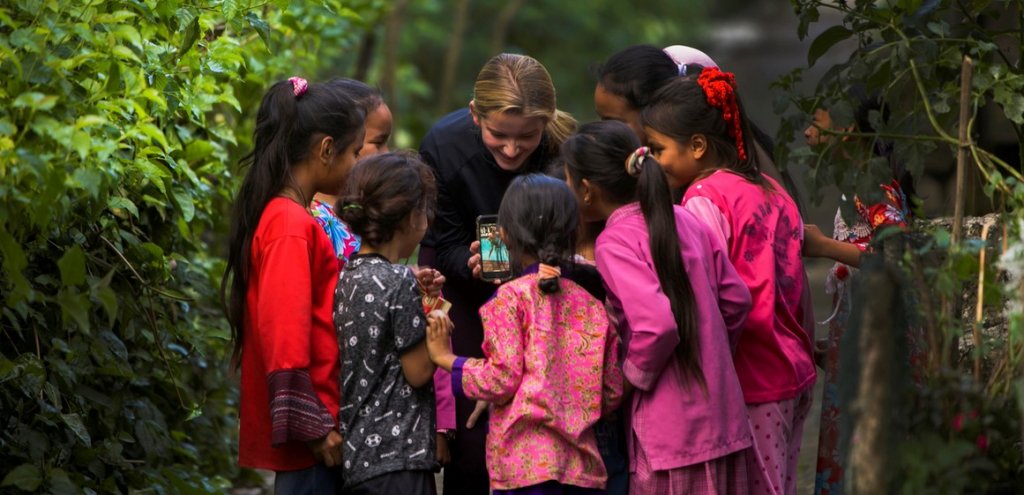
They are fabulous open women and have the same struggles as we have. Dengue fever is a big killer along with breast cancer and many other ailments which are minor to us but major issues to them due to poor health care programs.
Finally, on the future of the coffee farms, for the first time ever I saw that the younger women and men want to continue coffee farming and the opinion that it contributs significantly to their future is widespread.
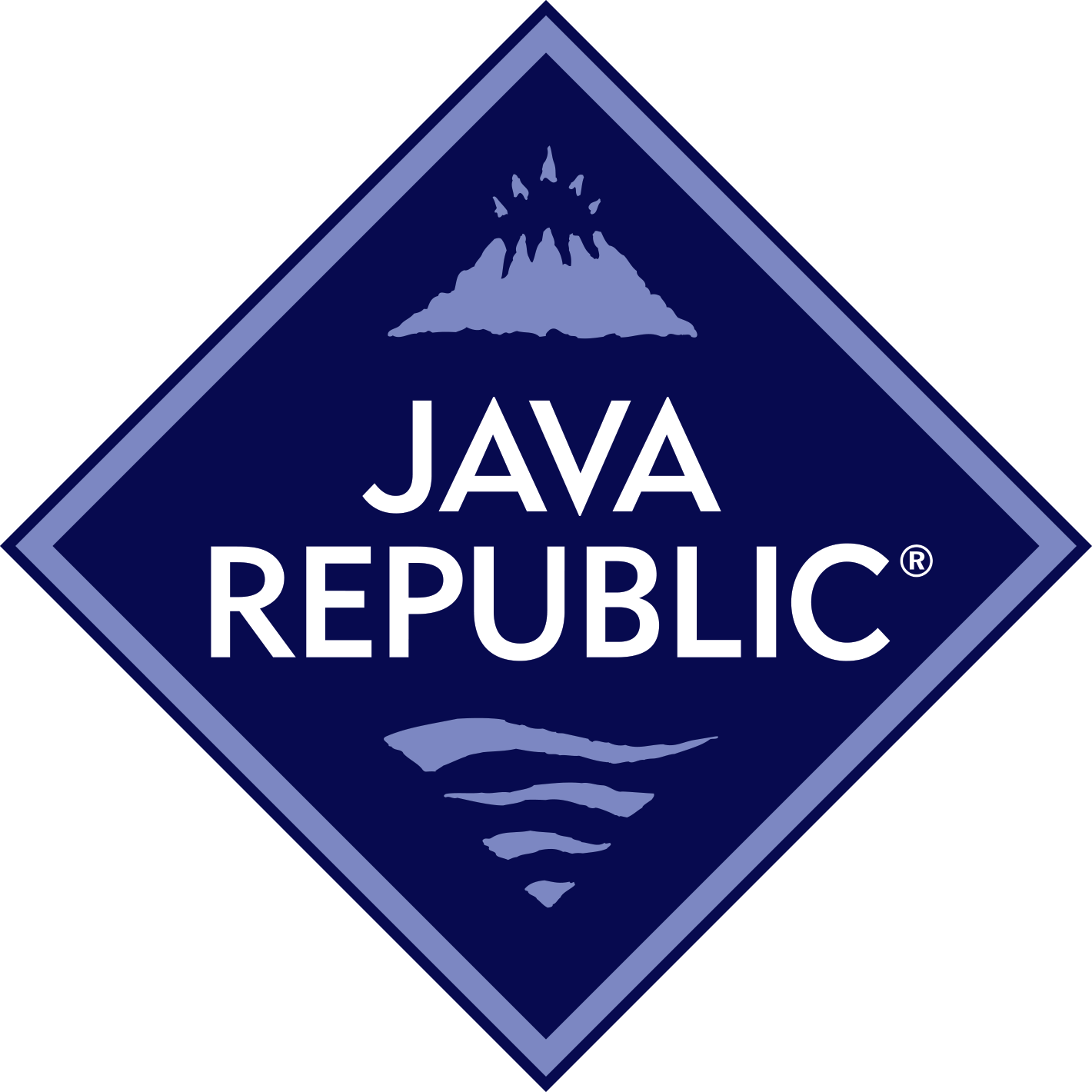
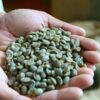
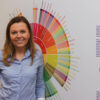

You must be logged in to post a comment.